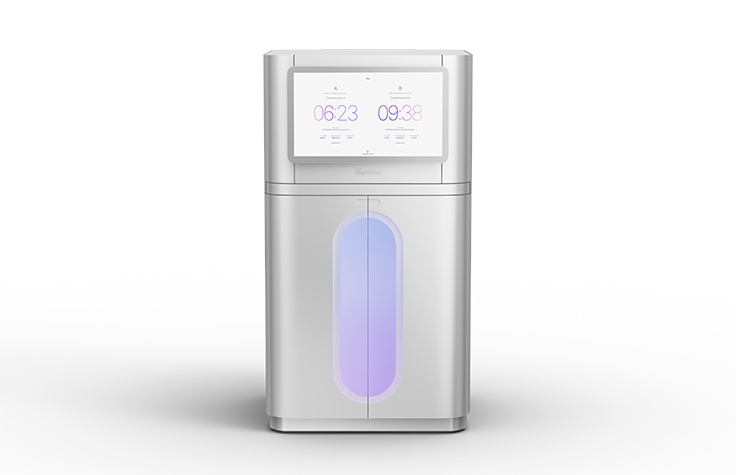
NovaSeq X Series ordering
Advanced chemistry, optics, and informatics combine to deliver exceptional sequencing speed and data quality, outstanding throughput, and scalability.
Illumina Polygenic Risk Score (PRS) software enables simplified analysis and reporting.
View the release notes for more information and supported Polygenic Risk Scores.
Illumina Polygenic Risk Score software is a user-friendly research solution that accelerates the complex Polygenic Risk Score (PRS) development process while reducing the need for technical expertise.
The Predict module identifies an individual's genetic disease risk, considering their ancestral background. The Predict module uses imputation software to increase the number of genetic variants included in your dataset. This allows you to apply your risk score or choose from a list of risk scores from the Polygenic Score Catalog (PGS Catalog). The output is an optional summary report of an individual’s risk score compared to a reference population, allowing you to estimate any variance in relative risk.
The Illumina Polygenic Risk Score software – Predict module offers:
This software is available as part of a comprehensive toolkit. You'll also need a suitable human Infinium BeadChip and associated reagents, access to an iScan System, and an Illumina Connected Analytics annual subscription (Basic, Professional or Enterprise) to facilitate analysis.
The Infinium Global Diversity Array with Polygenic Risk Score Content is designed specifically for this software.
Predict software module
Polygenic risk scores represent the total number of genetic variants an individual has that increase their risk of developing a particular disease.
Complex and genetic disease research
Comprehensive array and next-generation sequencing solutions to accelerate research of various genetic complex diseases.
Personalized medicine and health programs can help match patients to treatments and improve survival rates, quality of life, and the cost of care.
Researchers perform large genome-wide association studies with the Global Screening Array to identify disease-associated DNA risk loci and develop PRSs for clinical validation.












Polygenic Risk Score - Predict module - Array
20086666
Polygenic Risk Score.- Predict module, developed in partnership with Allelica, calculates and reports PRS from an easy to use interface in BaseSpace Sequence Hub. Billing is done per sample so users should purchaase the same number of units as samples available to analyze.
List Price:
Discounts:
Showing of
Product
Qty
Unit price
Product
Catalog ID
Quantity
Unit price
Reach out for information about our products and services, or get answers to questions about our technology.
Your email address is never shared with third parties.